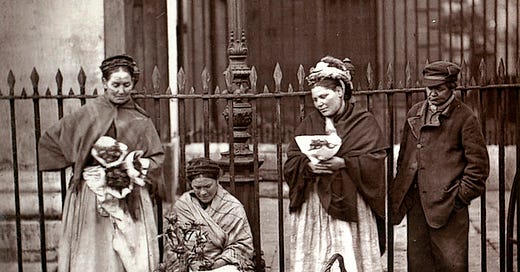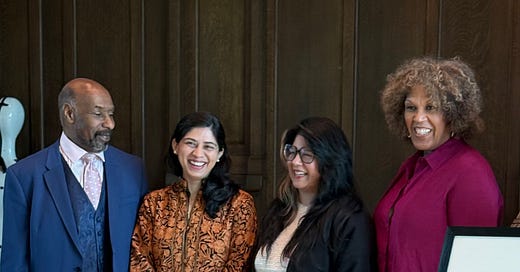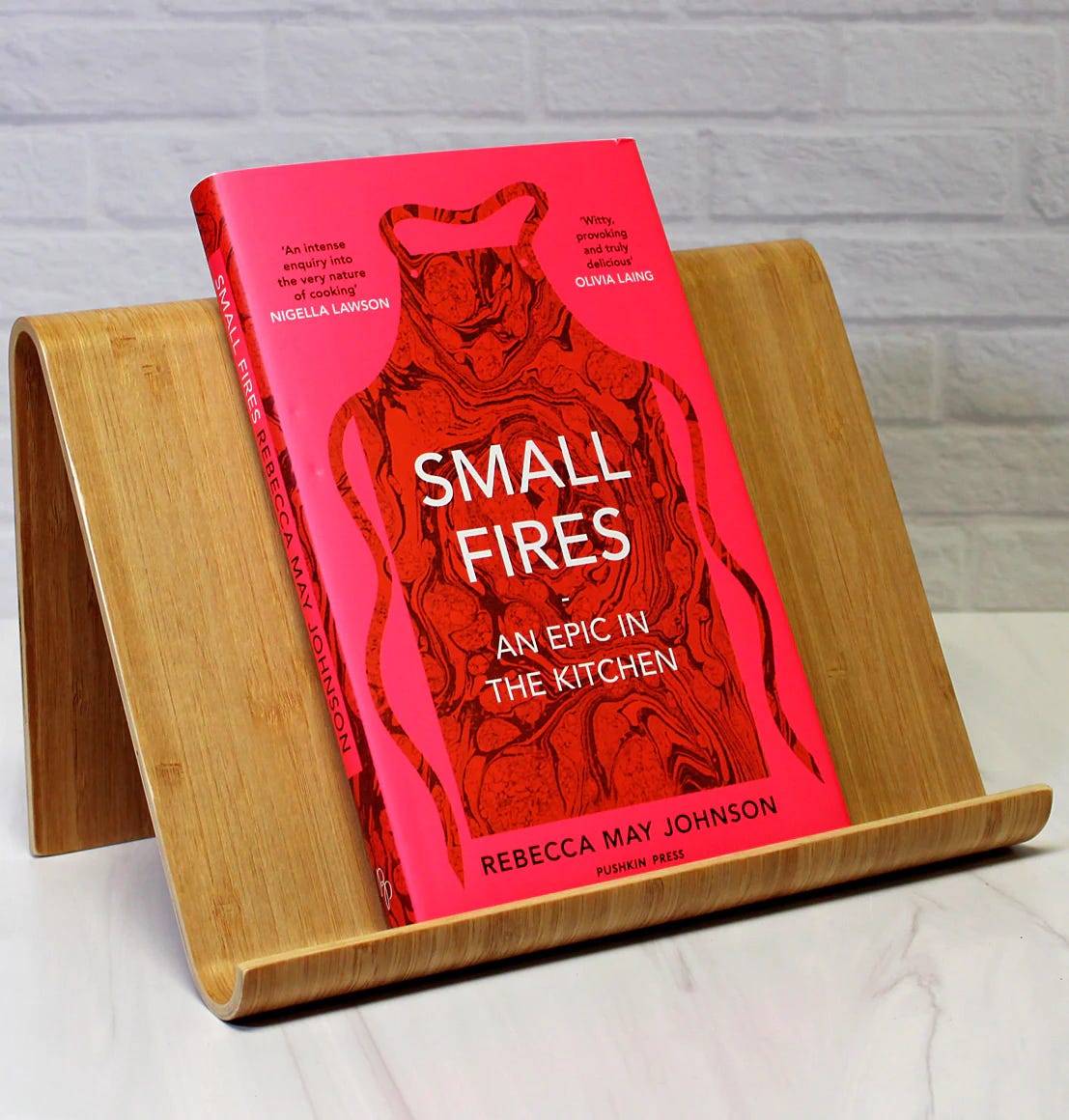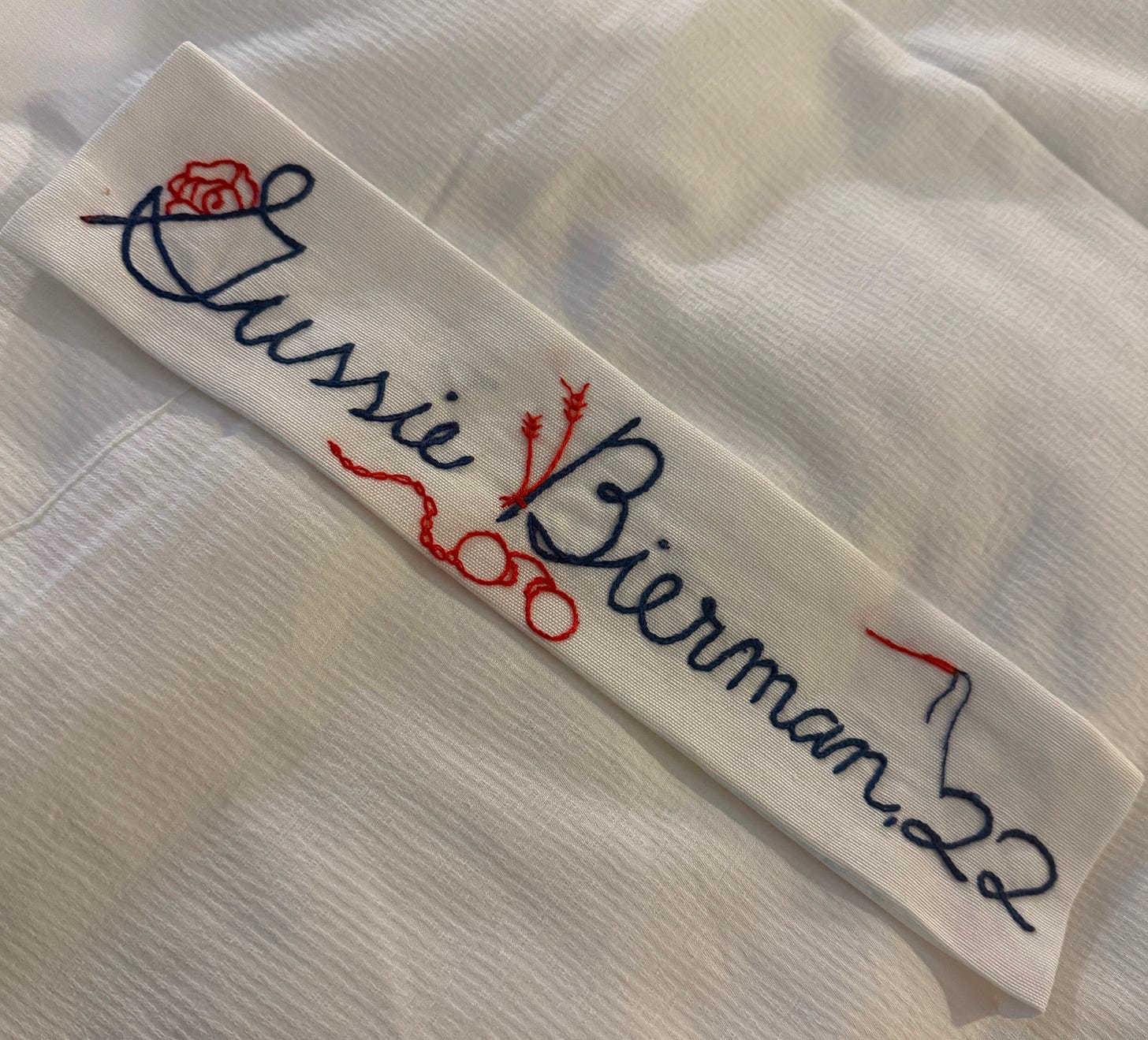I was going to write a post today, something kind of light and lovely, about getting the flowers yourself, about making a home and a space for light and beauty, on having and creating the material conditions necessary for others to connect, on being porous to the world, Clarissa-Dalloway-as-Queen-of-Pentacles. It’s the 100th anniversary of Mrs. Dalloway, Virginia Woolf’s novel ostensibly about a woman throwing a party, said to take place “on a Wednesday in mid-June.” I love Mrs. Dalloway—I’ve read it a number of times, most meaningfully in grad school, for Stephanie Paulsell’s class on Virginia Woolf and religion, have thrilled to the way it leaps from character to character, the way it seems to mimic the best parts of living in a city, the way it makes room for everyone to have a voice and a mind.
I’ve been re-reading Mrs. Dalloway to prepare for writing this, and have ended up instead with my phone propped between the pages of the book, watching reel after reel, reading article after article about the increasingly violent, brazenly illegal ICE arrests in cities like Los Angeles and Chicago, and also, the increasing state violence against protestors who are rising up to defend their communities. When ICE patrol cars are rightfully being set ablaze, when families are being torn apart, what does a Wednesday in mid-June 100 years ago matter?
I don’t have a great answer to this question, other than to think about time.
Mrs. Dalloway is obviously not only about a wealthy woman throwing a party. It’s a novel about aftermaths, anchored very concretely in time—we hear the clock chime at every half-hour, we know the day of the week and the month and the year (1923). It is a novel of building anticipation set in a variety of nested aftermaths. Clarissa Dalloway is in the aftermath of an unnamed illness (in all likelihood the Spanish flu) that has left her thin and pale, all of London is in the aftermath of the first World War, and we see it touching on characters—Miss Kilman is bitter and lonely, shell-shocked Septimus Warren Smith feels himself to be guilty of a great crime. You could even argue that the novel is about the aftermath of youth—all the great patterns set in motion, and nevertheless the youthful ambitions and loves and dramas rising back up to haunt our characters.
In a lot of ways, Mrs. Dalloway is a book that looks around a shelled, shaky version of the world and asks “…what now?”
We are not currently in an aftermath, we are in the emergency. Things are happening now in our neighborhoods and our cities, in our governments and on our streets that have implications for generations. Some of us are better insulated than others—no one is knocking at our doors, some of us can afford the party, afford the brain space to think about the party.
There’s a sense in which Clarissa is porous to the suffering of Septimus Warren Smith—she feels the moment of his death in her body, she goes up to her little attic room and away from the light and glitz of the party to really feel it, to be more present. However, she also basically stamps her foot, feels like this news has ruined her party, resents the intrusion.
I have read this book generously before, have listened to Stephanie Paulsell describe virginal, contemplative Clarissa as a nun, praying for and taking in the world from her little slice of London, have read her porosity as care. This time, I was short on generosity—I found myself impatient with the flowers, impatient at the gossip, at the willingness to let the generative, argumentative friction of youth go in favor of a soft, supported adulthood. I’m impatient with her hand-waving dismissal of the Albanians or Armenians or whoever and their suffering, infuriated at her daring to feel Septimus’ death on a kind of coequal footing. I suspect this impatience, this anger has more to do with how I feel about myself than how I feel about Clarissa Dalloway.
I feel alienated and disempowered, tired and angry, unsure even of how to speak out about this, how to clear my throat just to say the obvious thing, the thing I’ve been saying all along. People deserve safety, deserve our care, deserve not to be picked up and deported. Immigrants do not get their value from their hard work, from their being mothers or children, from following the laws and jumping through hoops. And yet: I’m packing tonight for a trip to the west coast to watch my sister graduate and my friend get married, I’m going to hand over a REALID at the airport and board a plane like it’s nothing, I just got my nails done to match my outfit for the wedding, I’m wondering what earrings to pack. The flowers are well taken care of.
More vulnerably: I wrote a book about immigration and about getting involved in your community and I find myself strangely wordless, feel like a cheap poser activist more attached to the label than the work in this moment. Yeah, I’m doing work with the Midwest Immigration Bond Fund, but I’m mostly at home, sending emails. I wonder if this whole newsletter isn’t me hiding behind, say, needing to re-read the entirety of Mrs. Dalloway and pack for a trip rather than trying to get my feet on the ground. It is so fucking easy to stay complacent, to fuss about getting ready for the party and obsess over my own comfort than stay in these places of anguish and heartbreak, and its easy to retreat into this little shell of yourself. It’s one thing to feel the death, the suffering of another person in your body, to pull yourself away from the party, it’s another entirely to put your actual body on the line, to plunge into the heart of it.
I’m not ready to discard Mrs. Dalloway—there’s something there, something I’ve written about before that lives at the heart of all Virginia Woolf books—she writes, ultimately, about care, about the little flame of subjectivity and personhood that lives at the heart of everyone. She sometimes fails in her writing of people that are very different from her—those in different social classes, races, religions—but there’s also a kind of deep understanding of personhood at the heart of her work.
There’s also a way to read Mrs. Dalloway as a book about creating a space for care—she says she wants her party to be the kind of place where people go beyond themselves, where their every need is met and they can attend to….something else, something beyond the spiritual realm. I got asked, once, very insistently, by a panel moderator why I had made a book about such ugly things so beautiful, and the answer then, as it is now, is that beauty does not cease to be a human need, even in difficult conditions. The thing we fight for when we fight is not just survival but the right to beauty—to determining what beauty is, and to laying a claim to it for ourselves, the right to build a beautiful life. But I think, right now, that should not be the focus. We are not in the aftermath, where building a new world seems possible. We are in the emergency, and we need to fight like hell to make sure we bring as many people as possible with us to build that new world—that people and families stay whole and unbroken.
This is all to say (and I say it to myself here, primarily) : by all means, go get the flowers yourself, but also, perhaps, throw a brick or two on the way.
Midwest Immigration Bond Fund is having to close their application for the first time this year. We only close when we run out of funds, and this year has been tough. The rise of electronic monitoring has meant it is tougher for people to fulfill their bond conditions (ankle monitors running out of battery, glitchy apps to report to, rapidly changing rules and regulations), and showing up to immigration court isn’t exactly a safe thing for anyone right now, so we are understandably getting fewer bonds back. In addition, bond amounts have been going up substantially—we’re now regularly seeing bonds between $7,500 and $15,000, as opposed to the median bond for FY 2024 of $5,000. Donations from individuals and our community are the main ways that we’ve been able to get 38 people out of immigration detention this year, help us make it 39 by giving us a few dollars.
A quick note to remind you that my workshops are coming up:
Dear Diary: Building a Sustainable Journaling Practice is a class where we’ll talk about how to get the most out of your journal—and how to make it a flexible, beautiful part of your day-to-day life that grows and changes as your needs do. I’ll be offering it on Saturday, June 28, 2025 from 11-1 ET, and on Sunday, June 29 from 7-9 ET.
Translation as Obsessive Re-Reading is a class where we will be exploring translation as if it were a form of obsessive reading: a way of personally creating and recreating those texts that fascinate us. Using the reflections of authors/translators such as Kate Briggs, Mireille Gansel and Rosario Castellanos, we will investigate how to create a translation practice that coexists with reading and writing. Class will be Saturday, July 29th from 3-5 pm E.T.
Paid subscribers get a 25% discount, so subscribe today! HOWEVER IF YOU DONATE AT LEAST $10 TO THE MIDWEST IMMIGRATION BOND FUND AND SEND ME YOUR RECEIPT, I WILL ALSO GIVE YOU THAT DISCOUNT CODE. Paid subscribers: Discount codes can be found at the foot of this email.





















